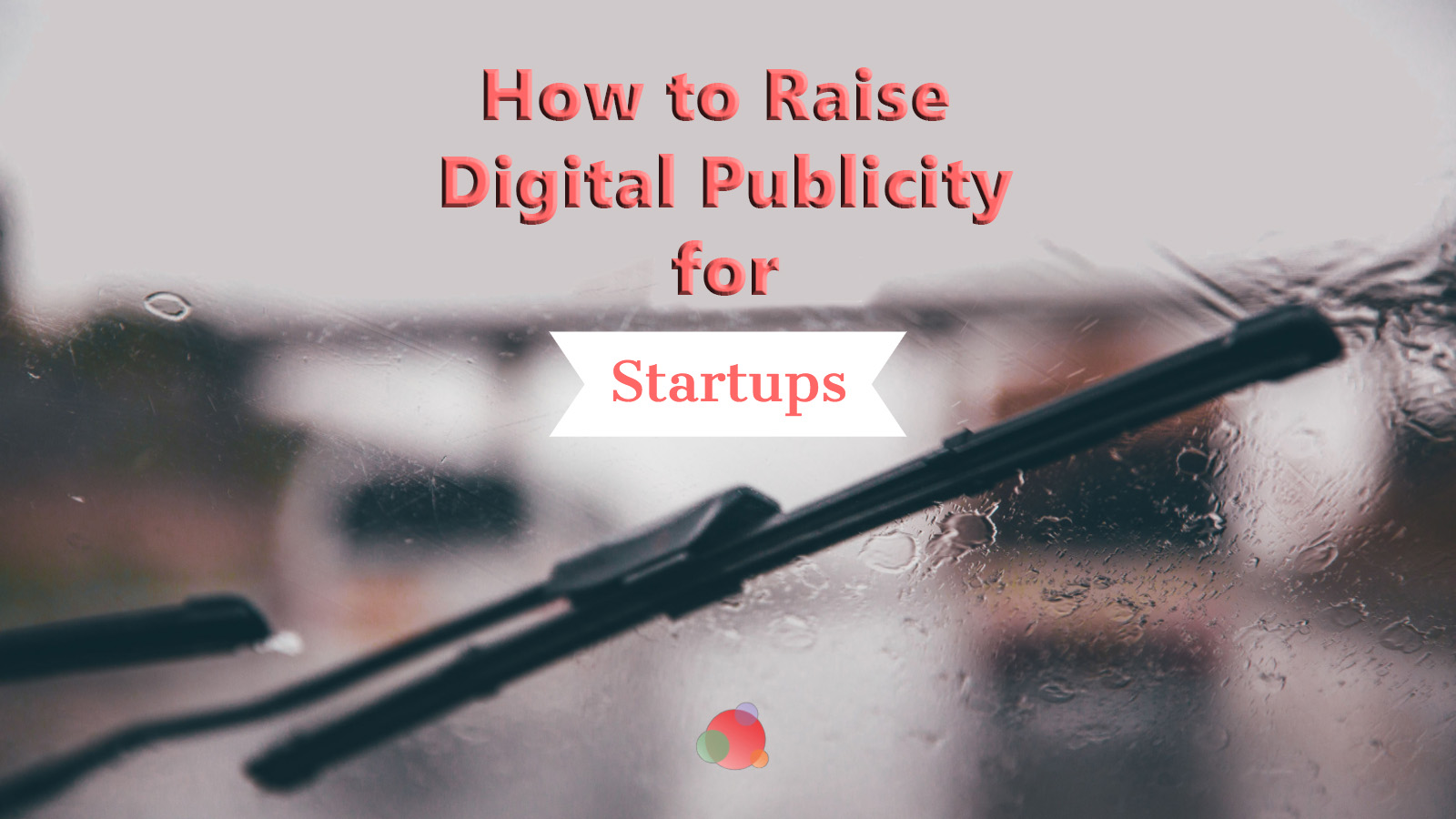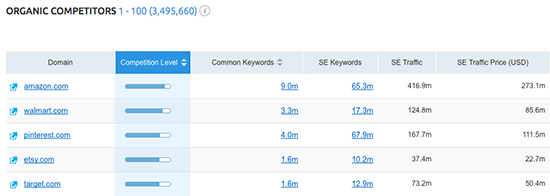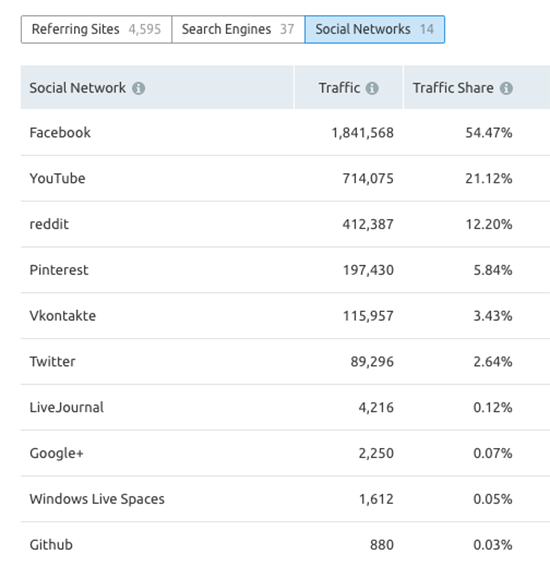 No startup can develop or attract new customers without publicity.
No startup can develop or attract new customers without publicity.
You may envision this as a big PR-generating machine with many employees, networking and media channels in place, and an expensive marketing campaign, but that is PR as we once knew it.
The arrival of the digital age has changed the ground rules.
Digital publicity is an efficient and relatively inexpensive activity that should be in place at every company—big or small, established or emerging.
Digital publicity should bring visibility and brand awareness.
And more importantly, it should attract potential customers.
Despite this, many startups are still unsure of how digital publicity benefits their business.
What is Digital Publicity?
According to Google, publicity is:
The notice or attention given to someone or something by the media.
And of course, who are we to dispute this notion?
However, when it comes to startups, digital publicity goes beyond the media.
Startups Live and Die by Their Visibility
You can have an unmatched product and great customer service with the best prices on the market, but if no one knows about you—well, what’s the point?
But, people will find out about your business online if you tame the search engines.
And if potential customers stumble across your business everywhere they go online; they are going to trust you.
After all, there must be a reason why everyone is talking about your business, right?
Gain Their Trust and Customers Will Come
Without user acquisition, you will have a hard time convincing the market you have staying power and can successfully compete.
After all, the odds are against you.
Half of all startups fail within five years of launch, and 70 percent see a post-mortem after 10 years.
Without Digital Publicity (aka Online Visibility), Startup Growth is a Challenge
Luckily, you can generate publicity and interest around your startup by focusing on marketing channels which drive visibility and acquisitions.
Digital publicity is an interesting phenomenon – despite not being a separate channel itself, it leverages the strengths of every other digital channel.
Moreover, and quite possibly the best part, digital publicity (and the key word is – digital) makes your activity more measurable.
And with the help of certain tools, you can evaluate each action taken by your company.
Here are four of the most effective channels you should leverage.
1. Search Engine Optimization (SEO)
With 72 percent of potential users starting their buyer journey in Google, your startup simply cannot afford to lose those people, hence, the importance of SEO.
SEO gives you the opportunity to position your brand in front of the people you need to target.
Of all the SEO strategies out there, three are especially helpful for generating publicity:
1) Research Your Competitors’ Strategy
Your competitors have already been where you are now – at the start of a successful journey. If something has worked for your competitor, it will most likely work for you too.
And it all starts with research. For a startup, conducting SEO competitive research means uncovering:
- which keywords your competitors target in their strategy,
- how they fetch up their content, and
- going through their backlink profile to learn which links you could potentially focus on.
Tools to use: Monitor Backlinks, Ontolo, and SEMrush, or any other organic research tool that helps you discover and reverse-engineer competitor link-building strategy.

Organic search competitors for ebay.com according to SEMrush USA Database
2) Find Relevant Keywords
Apart from looking at competitors’ target keywords, you should also research any other phrases (remember semantics?) your audience may be entering which match those solutions your business can offer.
You must be data-driven to ensure you are not wasting effort on inefficient keywords. This helps place your startup for the most relevant searches and in turn, appeal to a highly-targeted audience.
Tools to use: LongTailPRO, Similarweb and SEMrush will help you conduct thorough keyword research with costs-per-click counts and the amount of traffic each keyword or phrase can generate to build a smart and effective keyword strategy.
3) Build Backlinks
The quality and quantity of links that bring users to your website directly affect rankings.
You should try to build as many authoritative backlinks so your startup will rank highly for relevant searches.
The fastest way to find the right sites, and journalists (or bloggers), who will mention your business is to check which domains refer to competitor websites. SEO tools, such as Majestic and SEMrush offer similar functionality.
You want to get links from trustworthy and authoritative websites, so create content that will potentially interest them.
Take a look at recent articles and their performance, and see if the topic your business covers is related to what they post and could appeal to them. The rest is a matter of outreach.
2. Paid Marketing
I admit the term paid marketing might sound vague.
After all, marketing activities rarely come without a price.
But here, it simply refers to online advertising strategy.
Paid marketing conventionally entails:
- Paid ads on social media channels such as Facebook or Instagram. You can leverage these ads to push your product or bring your best content to your target audience.
- Google Adwords campaign. Aim to attract potential online users to your
- Display and banner ads on websites your audience frequently visits. These ads work similar to display ads you see on the street – they strengthen brand awareness and can position your startup as the answer your audience seek
- Sponsored posts.
- Paid re–marketing campaigns. These work by following users who have previously engaged with your brand (website).
- Affiliate marketing. This involves promotion from people who advocate your startup.
Tools to use: For paid advertising, most platforms—Facebook, Twitter, AdWords—have perfectly sufficient built-in analytics. The key is to take a look at your competitors’ advertising strategy and see what works best for your industry. Both Moat, a tool specifically built for competitor ad analysis, and Advertising Research provide an overview of competitor advertising campaigns.
3. Social Media
Social media and startups are a match made in heaven.
From the early stages, every startup aims to build an audience.
Not necessarily an audience of users, but potential customers, because the earlier they engage with your brand, the bigger chance they will convert.
And social media is all about building and engaging an audience.
However, before you jump into hastily creating accounts on every social media channel, there are a few things to keep in mind:
- Target the most relevant social media sites. It is not necessary to be present on all social media networks. You only need to target those where potential users are active. You can see how much traffic each channel brings to your competitors and put your efforts only on those sites that bring the biggest returns.

Social media traffic sources for ebay.com according to SEMrush Traffic Analytics
Hint: Use Social Media Tool, Marketing Grader, or Brandwatch to analyze the social media channels your competitors are using and reveal strategies you can use right away.
- Respond to brand mentions. Social media is not merely about sharing content. Interact with anyone who mentions your startup, and you will see that timely engagement will turn those users into brand advocates. Tools like Brand Monitoring or Mention can track and respond to brand mentions and build a connection with your audience.
- Experiment. There isn’t a perfect recipe for social media success. Constantly experiment to see what works best for your audience and boosts your publicity. You can experiment with new headlines for social media posts, test different posting schedules, use various message formats, and leverage visuals and emojis.
4. User Reviews and Influencer Relations
Product reviews, influencers, and external publications all are still necessary.
With so many consumers basing buying decisions on user reviews and influencer feedback, it would be unwise to ignore this more traditional route.
At the bare minimum, you should implement the following strategies:
- Connect with industry bloggers who will review your product.
- Use podcasts to acquaint a relevant audience with your brand.
- Build strong influencer relationships.
- Contribute to top industry media. Groove has reached over 1 million people this way. Buffer attracted 100,000 users with this strategy.
- Appeal to investors looking for the next hot startup via Crunchbase or AngelList.
In Conclusion
As a startup, you need publicity and visibility to attract users and grow the business.
And raising digital publicity is not rocket science, yet it requires solid knowledge of how to leverage existing digital channels to get to your target.
Use digital publicity to build visibility, increase brand awareness, and get the users you eventually want to convert into paying customers.
How have you used digital publicity to launch your business, gain visibility, or increase your customer base? Please share in the comments below.
The 30-Day Communications Challenge begins on January 3. Have you subscribed?